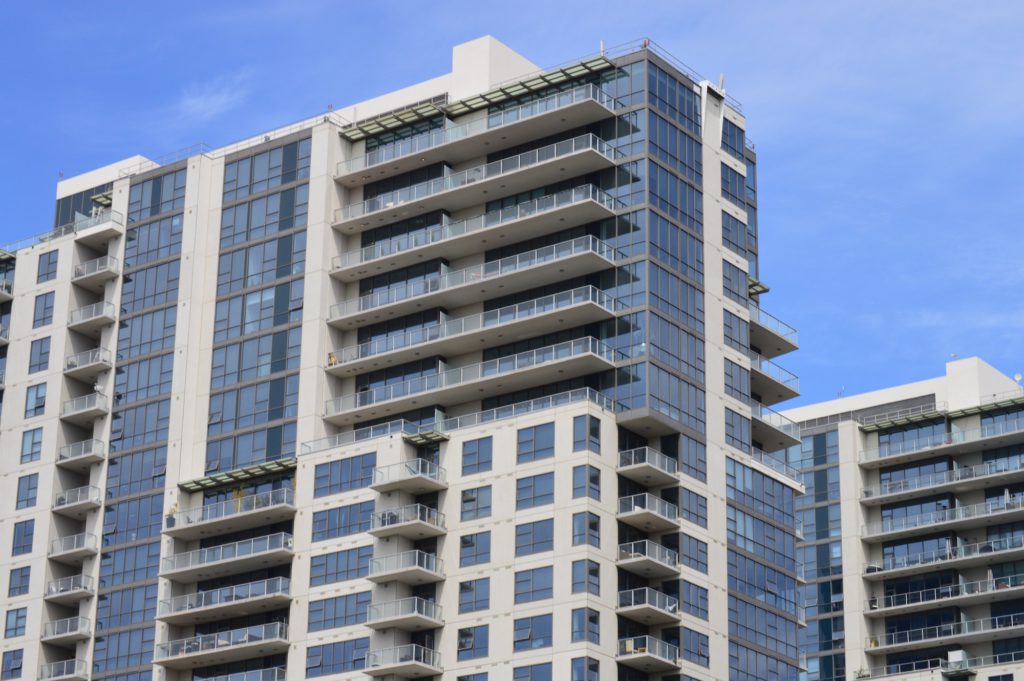
No Airbnb host or property manager wants to handle an irate neighbor complaining about late-night noise coming from the vacation rental next door. And they definitely don’t want to deal with law enforcement or security intervening in a noise situation. Having a privacy-safe noise monitor that measures decibel levels, but does not record guests, installed at the property, can prevent both of these management headaches.
But there are other reasons for needing a noise monitoring device that may not be as apparent. They are, however, just as important. And sometimes they can lead to a significant loss of income, and even the loss of a short-term vacation rental property altogether.
These are the top 7 reasons for installing a privacy-safe noise device in your short-term vacation rental.
- If the short-term-rental property is being managed remotely.
- If neighboring houses are very near by.
- If the property is in a multiple-unit dwelling.
- If the property is in an area that’s a big draw for younger guests or is known for parties.
- If you’re concerned about, or have been affected by, false noise complaints.
- If you want to better protect your property against costly damage.
- If your property’s local short-term-rental ordinance requires proof of a noise-monitoring device to obtain a permit.
Pro-Tip: Inform guests upfront. Airbnb, VRBO and other short-term-rental platforms require hosts to disclose that the property is equipped with a noise device. Include this disclosure with information about wifi, carbon monoxide detectors and security cameras.
1. If the short-term-rental property is being managed remotely.
A large number of short-term-rental property hosts operate “long-distance rental properties.” This means properties that are located at least a few hours’ drive away from the host, or possibly in another city or state. In these cases, a privacy-safe noise monitor helps by measuring noise and alerting the host when noise exceeds an acceptable level. The host can then opt to text the guests a gentle reminder to lower their volume a bit, wherever they may be. In more than 75% of cases, the noise problem is completely resolved with just this initial text.
For short-term-rental property managers who handle multiple properties in different areas, remote noise monitoring can cut down significantly on labor costs. Noise detection software can easily be integrated with other management technologies more efficient noise mitigation from anywhere, at anytime.
2. If neighboring houses are very near by.
Because all short-term-rental property settings are different, it’s important to have both an indoor noise monitor and an outdoor noise monitor with customizable noise thresholds. You can set the allowable noise level for your property’s situation to best accommodate neighboring houses. If neighboring houses are directly adjacent to or very near your short-term rental, noise monitoring is a must. By setting the noise threshold at a volume that cannot be heard by neighbors, you protect your property against noise complaints and potential law enforcement intervention.
3. If the property is in a multiple-unit dwelling.

Privacy-safe noise monitoring is essential technology for short-term-rental condos, apartments and townhomes. Noise complaints and fines can become a major issue when neighbors share a wall with a short-term-rental unit. A privacy-safe noise sensor set to the proper noise threshold can ensure that neighboring units are not bothered by noise, even from a unit directly upstairs, downstairs or next door.
This need is expanding as a much-discussed new “flexible living model” gains traction. Flexible living refers to multi-family communities where residents can freely rent their space, with the understanding from neighbors and management that short-term guests will stay on the premises. In some of these cases, noise monitoring is integrated with access control, cleaning services and other STR needs.
4. If the property is in an area that’s a big draw for younger guests or is known for parties.
Cities like Austin, Las Vegas, the Coachella Valley’s desert cities, and numerous Florida destinations are renowned for their nightlife, festivals and concerts. So it’s no surprise that these cities tend to draw college students, young guests, and groups looking for a place to party. While each of these cities has its own noise ordinances and short-term-rental noise rules, vacation rentals in all of these areas can benefit from noise monitoring.
The first step in protecting your property is thoroughly screening guests before booking, and avoiding red flags. Be wary about booking guests with limited or no rental history, or poor reviews from previous hosts. Also, make sure house rules are clearly stated in your listing (“no amplified noise at any time,” “no audible noise between 10 p.m. and 8 a.m,” “no parties or events,” “no smoking,” etc.). And, because even the most respectful of travelers can get a little rowdy when visiting town for a bachelorette bash, bowl game or spring break, have a noise-measuring device installed to remind guests to take it down a notch if needed.
5. If you need to use noise-monitoring-device data to defend against false noise complaints.
A significant portion of vacation rental property managers report using noise monitoring to protect against false noise complaints. Sometimes, neighbors don’t like living next to a property that is permitted as a short-term rental. They may have experienced past noise problems, or they simply may want to get the property shut down as a short-term rental. While privacy-safe noise detection does not record sounds, it does store data about decibel levels, which can later be used to defend against false noise complaints. Often, simply letting neighbors know that your property is equipped with a noise monitoring device will deter them from making false complaints. If a neighbor does complain, being able to show hard data to the contrary can help resolve the issue.
6. If you want to better protect your property against costly damage.

While excessive noise doesn’t always lead to property damage at short-term vacation rentals, damage is frequently preceded by excessive noise. By resolving excessive-noise events as soon as they happen, noise detection curtails behavior that may result in damage. A gentle text reminder to guests to lower the volume can prevent up to $5,000 in property damage annually (see item #4 above!).
7. If your property’s local short-term-rental ordinance requires proof of a noise monitoring device to obtain a permit.
This one is a no-brainer: If your city requires proof of noise-monitoring as a permitting condition, you need a noise sensor. While not all cities or counties require proof of a noise detection device in short-term vacation rentals, some do. And more are expected to as short-term-rental demand continues its unprecedented growth trend. Does your permit ordinance stipulate a noise detection device? Make sure you opt for a sensor that measures decibels only and does not record guests, for privacy-protected peace of mind, for hosts, managers, guests and neighbors.
Natasha Garber covers short-term-rental industry trends, news, regulations and compliance for NoiseAware. Her posts on STR property management technology, privacy-safe noise monitoring, and licensing laws can be found weekly on the NoiseAware blog.